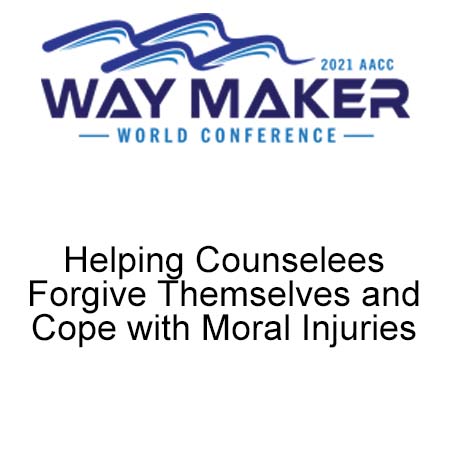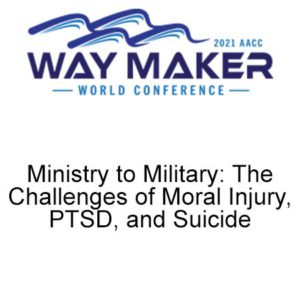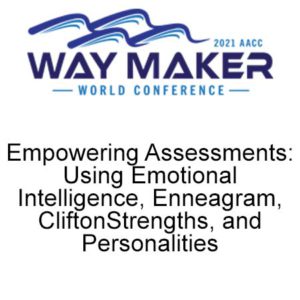Description
113: Helping Counselees Forgive Themselves and Cope with Moral Injuries
Everett L. Worthington, Jr., Ph.D.
Virginia Commonwealth University
Department of Psychology
Box 842018
Richmond, VA 23284
John McConnell, Ph.D.
Wheaton College
501 College Ave.
Wheaton, IL 60187
Brandon J. Griffin, Ph.D.
Department of Psychiatry
College of Medicine
University of Arkansas for Medical Sciences
4301 W. Markham St.
Little Rock, AR 72205
Summary
Many Christian and non-Christian clients want to forgive themselves. Research studies show that self-forgiveness often involves clients accepting responsibility for their actions by seeking reconciliation with God (or whatever they hold to be sacred). They may also seek to apologize and make amends to the extent that they can receive forgiveness from others harmed by their actions or a benevolent moral authority (e.g., religious/spiritual leader). Finally, clients must work toward repairing psychological damage stemming from self-condemnation, such as a persistent and global sense of inferiority. Emeritus Commonwealth Professor at Virginia Commonwealth University and developer of the REACH Forgiveness approach, Ev Worthington, will describe six steps for treating self-condemnation responsibly. Next, John McConnell, a Wheaton professor and private practitioner, will discuss the use of self-forgiveness within the psychotherapeutic relationship. Finally, Brandon Griffin, a licensed clinical research psychologist with the Veterans Health Administration, will discuss the application of self-forgiveness to enhance military veterans’ mental health and functioning. We emphasize the importance of accepting personal responsibility for one’s actions and accepting oneself as fallible but capable of growth using research-based strategies to promote self-forgiveness and illustrative examples from the presenters’ clinical practices.
Learning Objectives
Participants will:
• Identify the six steps to genuine self-forgiveness
• Describe how to use self-forgiveness effectively in therapy with individuals and couples for psychologists and licensed mental health professionals
• Apply self-forgiveness to treat moral injury





